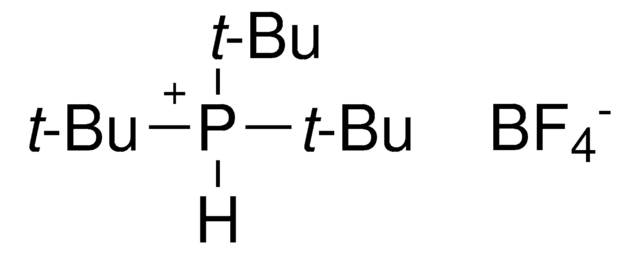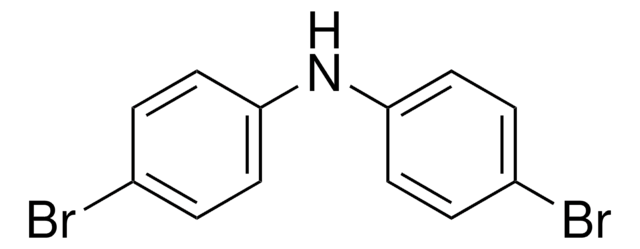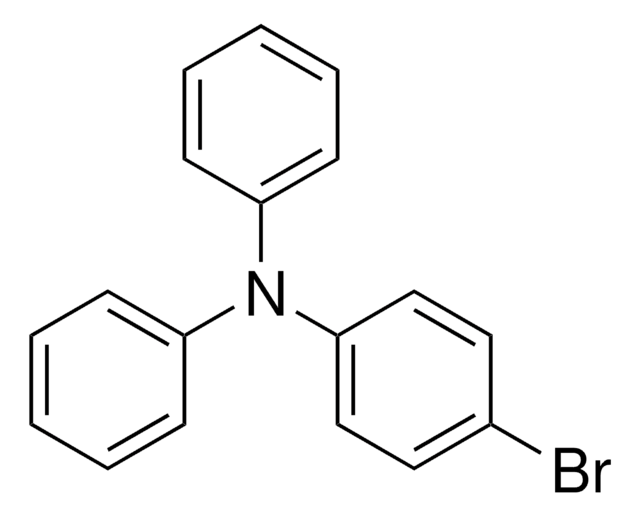767905
4,4′-Dimethoxydiphenylamine
99%
Synonym(s):
4-Biphenylamine,4,4′-dimethoxy-, 4-Methoxy-N-(4-methoxyphenyl)aniline, p,p′-Dimethoxydiphenylamine, Benzenamine,4-methoxy-N-(4-methoxypheny)-, Bis(4-methoxyphenyl)-amine, Bis(4-methoxyphenyl)amine, Bis(p-anisyl)amine, Bis(p-methoxyphenyl)amine, Di-p-anisylamine, Di-p-methoxyphenylamine, Termofleks A
About This Item
Recommended Products
Quality Level
Assay
99%
form
powder
mp
100-104 °C
SMILES string
COc1ccc(Nc2ccc(OC)cc2)cc1
InChI
1S/C14H15NO2/c1-16-13-7-3-11(4-8-13)15-12-5-9-14(17-2)10-6-12/h3-10,15H,1-2H3
InChI key
VCOONNWIINSFBA-UHFFFAOYSA-N
Related Categories
General description
Application
Signal Word
Warning
Hazard Statements
Precautionary Statements
Hazard Classifications
Carc. 2 - Eye Irrit. 2 - Skin Irrit. 2 - STOT SE 3
Target Organs
Respiratory system
Storage Class Code
11 - Combustible Solids
WGK
WGK 3
Flash Point(F)
Not applicable
Flash Point(C)
Not applicable
Regulatory Listings
Regulatory Listings are mainly provided for chemical products. Only limited information can be provided here for non-chemical products. No entry means none of the components are listed. It is the user’s obligation to ensure the safe and legal use of the product.
JAN Code
767905-VAR:
767905-1G:
767905-BULK:
767905-5G:
Choose from one of the most recent versions:
Already Own This Product?
Find documentation for the products that you have recently purchased in the Document Library.
Articles
Professor Chen (Nankai University, China) and his team explain the strategies behind their recent record-breaking organic solar cells, reaching a power conversion efficiency of 17.3%.
Our team of scientists has experience in all areas of research including Life Science, Material Science, Chemical Synthesis, Chromatography, Analytical and many others.
Contact Technical Service










